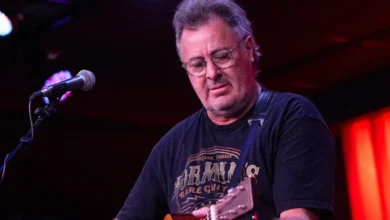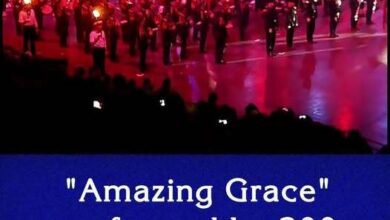Dolly Parton And Vince Gill’s Duet Of “I Will Always Love You” Left Us Spellbound And Amazed
Dolly Parton and Vince Gill’s duet of “I Will Always Love You” transcends mere musical collaboration; it represents an emotional journey captured through their unique artistry and shared reverence for the song. Originally written and performed by Parton in 1973, the song has resonated through decades, not only defining her career but also becoming an anthem of love and loss for many. The essence of the song encapsulates a poignant farewell laced with gratitude, making it a powerful piece suitable for numerous contexts, from personal tributes to romantic expressions.
Parton’s original version was conceived as a bittersweet goodbye to her mentor Porter Wagoner, reflecting a pivotal moment in her career as she pursued her solo path. The poignant lyrics and her heartfelt delivery convey a complex mix of sorrow and affection, making each note resonate with authenticity. This early rendition established Parton not only as a talented vocalist but also as an accomplished songwriter capable of distilling deep emotions into universal themes. The emotional weight carried by her voice, often described as possessing an Appalachian lilt, lends an authenticity that captivates listeners.
The collaboration with Vince Gill infuses a new life into “I Will Always Love You,” bridging generations in the country music realm. Known for his smooth vocals and impeccable guitar skills, Gill complements Parton’s narrative with a voice that blends seamlessly, creating a harmonic tapestry that enhances the song’s narrative richness. The dynamic interplay between their vocal styles enhances the song, allowing listeners to experience the layers of meaning in the lyrics in an even more profound way.
Their performance begins with a tender vulnerability, as Parton’s voice gracefully introduces the song’s emotions. Her delivery invites the audience into the intimate space of her feelings. As Gill’s voice emerges, his rich harmonies envelop Parton’s vocals, creating a lush soundscape that carries the emotional weight of the lyrics. This moment of layering exemplifies the duo’s chemistry, allowing the emotional resonance of the song to swell and recede like waves on a shore, evoking the cyclical nature of love and goodbye.
The arrangement of the duet is marked by its simplicity, featuring delicate instrumentation that draws attention to the vocal harmonies. Such an approach ensures a focus on the emotive urgency present in the lyrics, allowing each singer’s expression to shine through without distraction. The gentle acoustic guitar and soft piano accompaniment create an ethereal atmosphere that allows the heartfelt sentiments to take precedence in the listener’s experience.
Dolly Parton, with her infectious energy and charm, has long been a beloved figure in the music industry. Born in Tennessee, her upbringing in the Smoky Mountains influenced her musical style and lyrical themes. Over her extensive career, Parton has not only made her mark in country music but has also become a recognized figure in film and philanthropy. She has embraced her role as a storyteller, using her platform to champion various causes, particularly those benefiting children and literacy.
Vince Gill, hailing from Oklahoma, emerged as a significant voice in the country genre in the late 20th century. His career is characterized by a commitment to both traditional country values and contemporary styles, making him a versatile artist. With numerous awards, including several Grammy accolades, Gill’s contribution has enriched the fabric of country music. He is celebrated not only for his solo efforts but also for his collaborations with a myriad of artists, showcasing his ability to create magic in partnerships.
Together, Parton and Gill stand as symbols of the harmony found within the genre of country music—a genre deeply rooted in storytelling and emotive expression. Their duet of “I Will Always Love You” becomes a conduit through which audiences can connect with both the past and present, reflecting the timeless nature of love and loss. Their voices weave a narrative that is not merely heard but felt, allowing listeners to reflect on their own experiences of love, appreciation, and the pangs of heartfelt goodbyes.
The emotional landscape portrayed through their performance invites listeners to not only hear the song but to truly feel its essence. Through Parton and Gill’s interpretations, “I Will Always Love You” blossoms into a multi-dimensional exploration of human emotions. It evokes a spectrum of sentiments, reminding us that love, in all its forms, is enduring despite the trials of separation or change. This interpretation serves as a testament to the song’s ability to transcend time, situating it firmly as a classic piece of artistry that continues to resonate across different audiences and eras.
Dolly Parton and Vince Gill’s duet remains a powerful representation of talent and musical synergy, reinforcing the importance of collaboration in the arts. As they share the stage and the song, they remind us of the bridge between individual stories and collective experiences, and of the shared humanity that lies within the fabric of music. Their rendition is not just a performance; it is a heartfelt embrace of the enduring human spirit conveyed through the soulful medium of song.





